
Do you wake up to a pounding headache? Perhaps you struggle to keep awake while at work or even behind the wheel. Does your partner complain about you snoring during the night so much so, that they could not sleep? Chances are that you are struggling with a well-known issue called sleep apnea. If that is the case, here are 6 alternative treatments that you may want to explore.
What Causes Sleep Apnea?
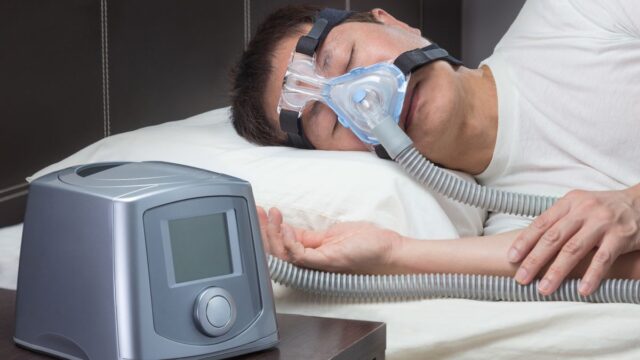
In healthy individuals, the airflow is normally continuous during sleep. However, in the case of sleep apnea, the breathing involuntary stops for brief periods. Studies show that sleep apnea affects approximately 2-9% of American adults.
A well-known characteristic of sleep apnea is loud snoring. This happens due to the narrowed airway space through which air needs to pass. Other symptoms include headache, drowsiness, irritability, fatigue, daytime sleepiness, etc.
There are several different types of sleep apnea. Of all, obstructive sleep apnea is marked as the most common one. Talking about causes, we need to mention several factors that act together. There are certain muscular changes, physical obstructions, as well as, poor lifestyle choices that contribute to the occurrence of sleep apnea. The risk factors for sleep apnea include:
- Smoking;
- Having a family history of sleep apnea;
- Sleeping on the back;
- Obesity;
- Down syndrome;
- Having a large neck circumference, etc.
Sleep apnea is a serious health issue that requires proper treatment. Left untreated, it can lead to metabolic syndrome, stroke, chronic fatigue, reduced quality of life, and additional health issues.
6 Alternative Sleep Apnea Treatment Options
1. Use a comfortable pillow that raises your head
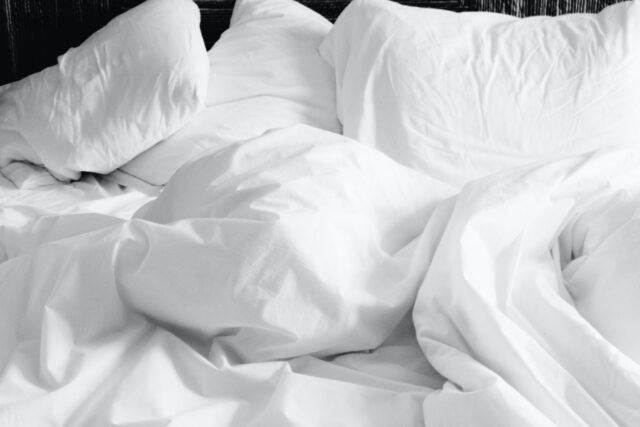
Science has shown that raising your head during sleep helps to reduce the present sleep apnea symptoms. This is a great tip to know if you like to sleep on your back. Sleeping on the back is a great risk factor for sleep apnea. However, with the use of a comfortable pillow that raises your head, this should no longer be a problem. We highly recommend investing in a high-quality pillow, check out this guide. Speaking on this topic, do make your own research to find the best fit.
2. Sleep on your side
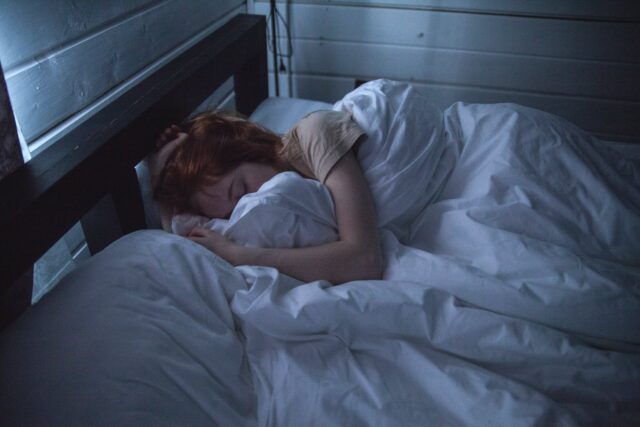
Sleeping on your back may be uncomfortable. In that case, the next sleeping position that you should try is sleeping on your side. You can use a body positioning pillow to keep you within that side position during the night. This is considered to be one of the best alternative treatments for sleep apnea.
3. Maintain a healthy weight
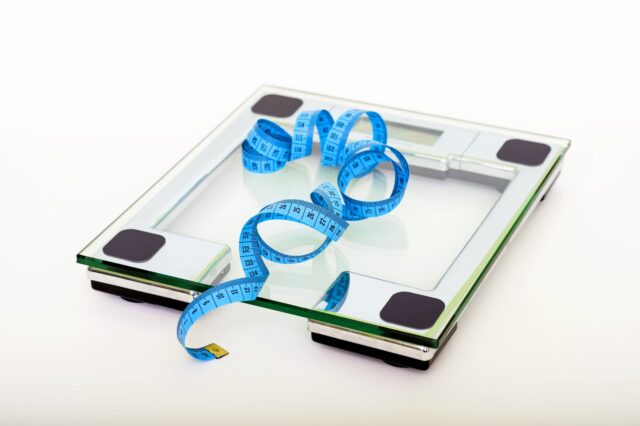
As we mentioned before, sleep apnea may be caused due to overweight or obesity. Maintaining a healthy weight can help reduce the symptoms, but also improve the overall quality of life. Obesity has been linked to so many difficult health issues throughout the years. So by losing weight, not only will you improve your sleep apnea, but you will also reduce your risk of stroke, heart disease, diabetes, etc.
To lose weight in a healthy matter, combine the benefits of a healthy diet and regular exercise. Focus on macronutrients such as healthy carbs, fats, and protein, and eliminate any processed food from your diet. Cook more of your meals at home and drink enough water. Practice daily physical activity. Whether it is walking, cycling, or doing some light-intensity weight training, the choice is up to you.
4. Sleep with an oral appliance
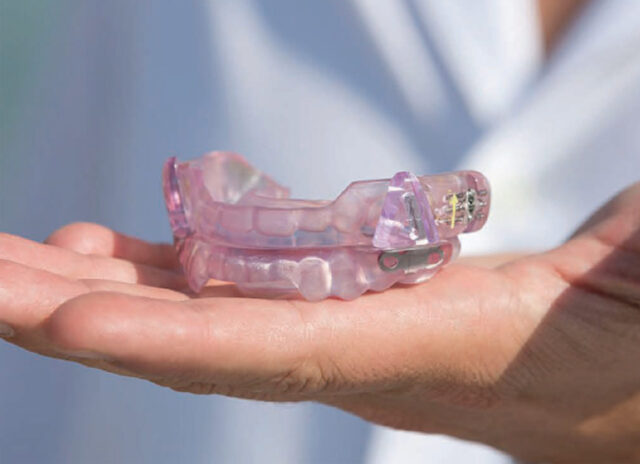
Using an oral appliance is one of the most popular treatment methods for sleep apnea. The oral appliance can help to reposition the jaw or the tongue to allow continuous airflow during sleep. You can choose between a mandibular advancement device or a tongue stabilizing device. Both of these devices work by repositioning the jaw or the tongue forwards to reduce the airflow obstruction in the back of the throat.
Do consult your physician when deciding on which device is the best fit for you. This is usually a low-cost solution as compared to the more costly CPAP therapy. CPAP stands for continuous positive airway pressure. It is done by using a special CPAP device that secures continuous airflow to the lungs during sleep. There are also APAP machines that can be set as CPAP.
5. Relax with yoga
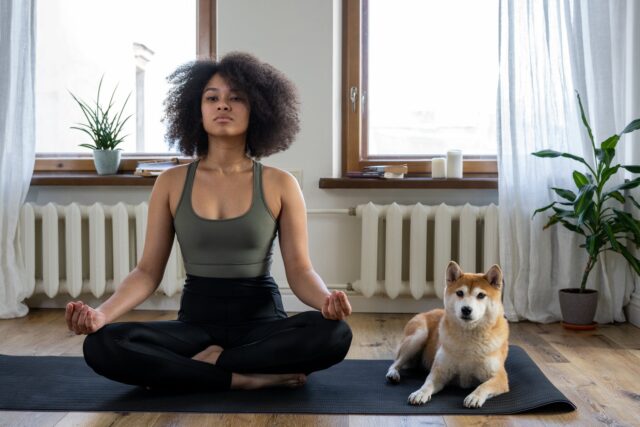
Speaking of physical activity, allows us to explain the benefits of daily yoga. Yoga focuses on breathing exercises as well as movement. Through yoga, not only will you get your daily physical activity, but you will also improve your breathing. Due to the discontinued breathing during sleep, sleep apnea reduces the oxygen saturation in the blood. This is what ultimately causes troubling symptoms the next morning.
Through daily breathing exercises, yoga will help improve blood oxygen saturation. It will also teach you different breathing techniques that you are encouraged to practice daily. Doing yoga before bed can help relax you and improve the quality of sleep. This will also reduce sleep interruptions during the night. And the best of all is that you do not even have to join a class. You can do yoga following one of the many videos and plans available online completely free-of-charge.
6. Quit smoking
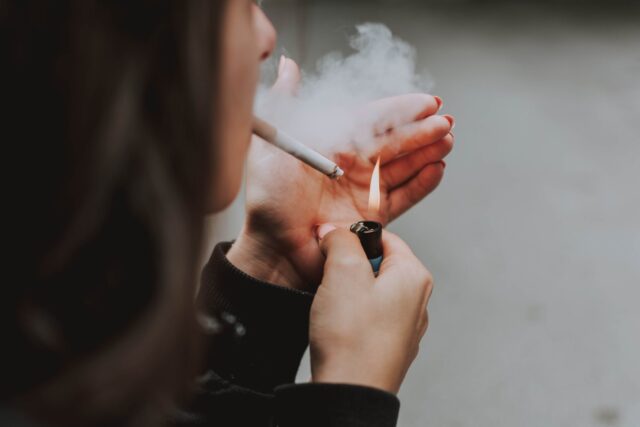
Other than obesity, smoking is also a potential risk factor for sleep apnea. A 2014 study has discovered a 35% smoking prevalence among patients with obstructive sleep apnea. Smoking causes inflammation and swelling in the airways. This can contribute to loud snoring and sleep apnea during the night.
Researchers have also explained that patients with sleep apnea were prone to smoking as a method to relieve some of the anxiety that sleep apnea brings. Quitting smoking can help treat sleep apnea. Do take the necessary precautions to help you quit smoking and preserve your health in the future.
Conclusion
Sleep apnea is more than a simple problem. It is a serious health issue that reduces the quality of your life, exposes you to multiple health risks, and can also potentially cause a life-threatening situation. We do not have to tell you how many car accidents happen because drivers falling asleep behind the wheel. All because of them struggling with untreated sleep apnea. If you no longer want to battle with this issue, we recommend exploring the alternative treatments that we told you about today.







